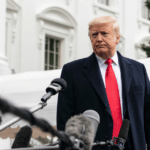


In a landmark legal move, New York Attorney General Letitia James is advocating for stringent oversight of the National Rifle Association and its former CEO, Wayne LaPierre.
The New York Post reported that the case may end with a lifetime ban for LaPierre and alterations to the NRA’s status as a charitable organization.
The proceedings, held in a Manhattan courtroom, have recently moved into their second phase, which scrutinizes LaPierre’s actions and the NRA’s future. This follows an initial phase where the court mandated LaPierre to repay $4.4 million for misusing charitable funds.
NRA lawyers and a current board member claim that banning LaPierre would violate constitutional principles. This argument comes amid signals that the NRA may renounce its charitable status.
Former NRA president Charles Cotton, who is also on the board, initiated changes to the NRA's classification from a charity in April, subsequent to a jury identifying mismanagement earlier in the year.
The trial has shed light on persistent internal resistance to reform within the NRA, even in the face of substantial legal and internal challenges. This resistance is underscored by attempts to evade consequences, like the NRA's previous bankruptcy filing and efforts to reincorporate in Texas.
The NRA board has introduced new measures for auditing and whistleblower protection, aiming to tighten oversight of financial activities.
Despite these efforts, Charles Cotton and other board members have characterized the negative outcomes of the trial as victories, framing the organization as a victim in internal communications and public releases.
Wayne LaPierre resigned from his position just before the commencement of the trial in January. This departure followed revelations of his financial mismanagement, though he faced no salary cuts, only increased monitoring.
“We were keeping a lot closer eye on him,” remarked Cotton, reflecting the board’s revised stance toward LaPierre post-scandal.
Since 2018, internal reviews of the NRA have documented a significant decline in cash flow and membership numbers, highlighting further instability within the organization.
During his testimony, Charles Cotton firmly stated, “We’re not a charity.” This declaration came after the jury’s decision in the first phase of the trial, which he boasted was won despite the Attorney General's efforts.
“Phase one was won, much to the chagrin of the Attorney General,” Cotton announced at the NRA’s annual board meeting in May. He later clarified, “Remember, phase one is a jury trial. It’s against individual defendants, not against the NRA.”
LaPierre's response to inquiries about his future and the gun industry was succinct: “I’m retired,” indicating his withdrawal from active roles and ongoing controversies.
In conclusion, the trial against the NRA and Wayne LaPierre has brought numerous issues to light, including financial mismanagement, resistance to internal reform, and the potential for significant shifts in the organization's structure and legal status.
Charles Cotton's remarks throughout the trial underscore a defensive posture by the NRA, despite external pressures and internal declines in resources and membership. The outcomes of this trial could redefine the future functioning of the NRA and its leadership.



